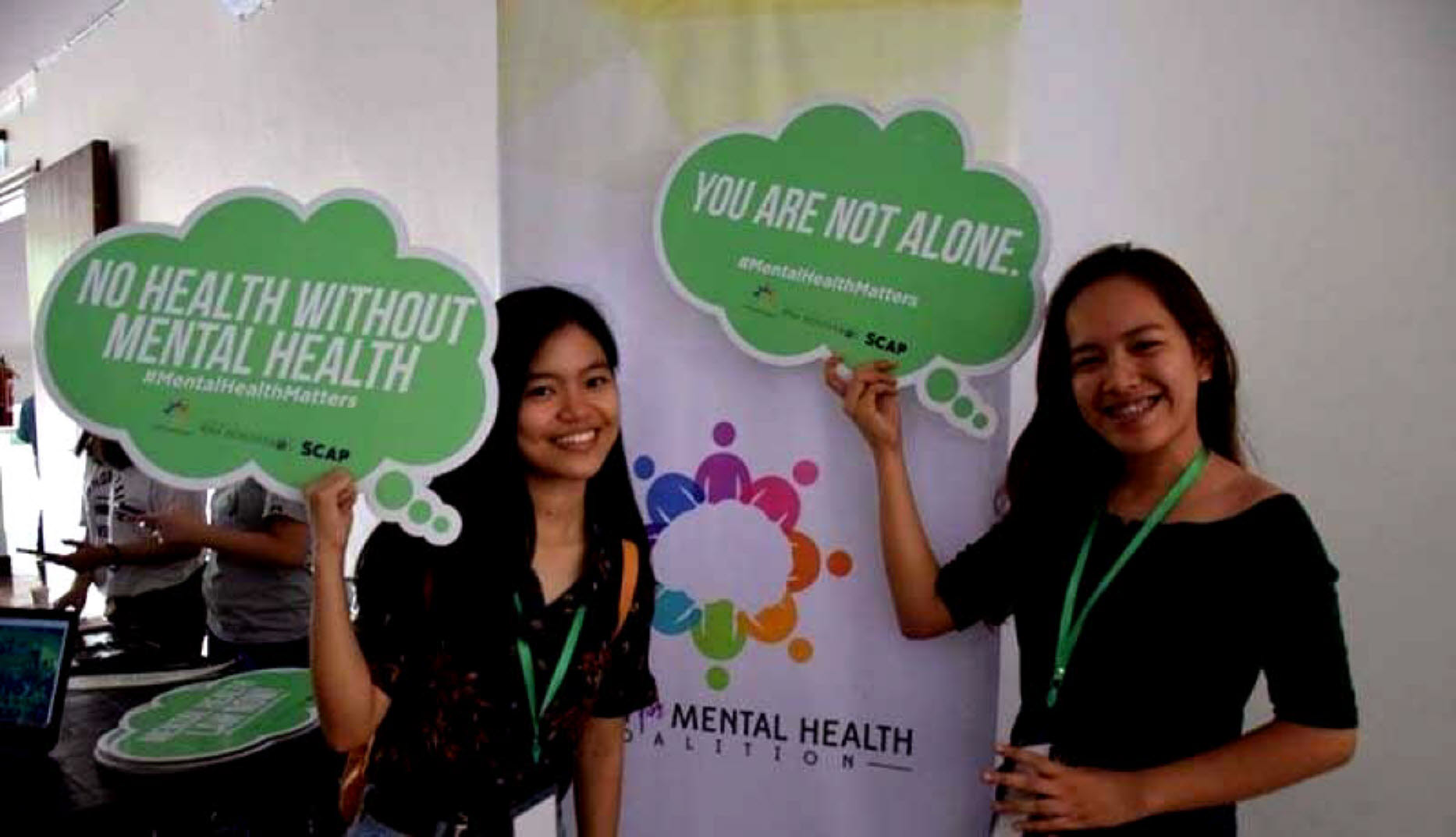
Say something, know something and be something to help improve #mentalhealth
By Madison Selcho
Carl L. Hanson, from BYU’s College of Life Sciences, speaks at a forum about #mentalhealth on July 26, 2022, at BYU in Provo. Hansen is sharing three strategies for navigating #mentalhealthstruggles: say something, know something and be something.
A BYU professor is sharing three strategies for navigating #mentalhealthstruggles: say something, know something and be something.
In a forum, BYU Public Health professor Carl L. Hanson described how these practices can aid in anyone's #mentalhealth journey, along with the important distinction between #mentalhealth and #mentalillness.
Say something
Hanson emphasized that while the terms #mentalhealth and #mentalillness are often used interchangeably, the phrases don’t mean the same thing. In order to discuss #mentalhealth, people need to say something about #mentalillness.
“#Mentalhealth is not simply the opposite of #mentalillness,” Hanson said. “#Mentalhealth exists on its own continuum and we can flourish and achieve optimal #mentalhealth or languish whether we have been diagnosed with a #mentaldisorder or not.”
Hanson explained that everyone has the responsibility to speak about #mentalhealth and #mentalillness in accurate terms so that others have a better understanding of how to help people in the community.
"Having conversations about #mentalillness can help us reduce the #stigma or negative perceptions of people with #mentalillness," Hanson said.
According to #MentalHealth America, more than half of the total #adults in the U.S. and half of Utahns with #mentalillness do not receive the help they need. Hanson referred to a study that found that #suicidalideation within college #students has increased 64% since 2013. That study also found that more than 600 people die yearly from #suicide in Utah.
Hanson said some of the factors contributing to the number of #suicides include “a lack of access to #mentalhealth care due to lack of insurance, fewer provider options, and cost of care and a personal choice not to utilize the services because of the #stigma related to obtaining treatment.”
Suicide itself is not a #mentaldisorder, Hanson emphasized — rather, #mentaldisorders are causes of #suicide. He urged everyone to look for ways they can support solutions and prevent #suicide.
The new #NationalSuicidePreventionLifeline is available by calling #988 and the SafeUT app is available to help Utahns.
Know something
Hanson said there are many different root causes of #mentalillness, and these causes are usually put into two categories: risk factors and protective factors.
“Risk factors are those things that increase the likelihood of an individual experiencing the problem,” Hanson said. “Protective factors are those things that mitigate the risk and are often simply the opposite of the risk factor.”
Examples of risk factors include perfectionist attitudes and #childhood #trauma, Hanson said, while an example of a protective factor is healthy relationships, which research found help mitigate certain risk factors.
“Much of this work points to the powerful influence of context and our interactions with others in settings like home, #school and communities,” Hanson said.
Be something
Ultimately saying something and knowing something about #mentalhealth doesn’t lead people to excellent #mentalhealth without also being something, according to Hanson. “To achieve optimal #mentalhealth, be our best self and flourish, we must be something as well,” Hanson said.
He explained that focusing on the journey of improving yourself while embracing failure will lead to better overall #mentalhealth. Hanson also emphasized that having an overall sense of wellness, otherwise known as being "wellness wise," will help lead individuals and their peers to better #mentalhealth.
“As we become wellness wise by embracing wellness as a whole person opportunity, we ‘will not only be capable of meeting personal challenge and change but will also bring strength to others in the tasks of home and family life, social relationships, civic duty and service to mankind,’” Hanson said, quoting the BYU mission statement.
#James Donaldson notes:Welcome to the “next chapter” of my life… being a voice and an advocate for #mentalhealthawarenessandsuicideprevention, especially pertaining to our younger generation of students and student-athletes.Getting men to speak up and reach out for help and assistance is one of my passions. Us men need to not suffer in silence or drown our sorrows in alcohol, hang out at bars and strip joints, or get involved with drug use.Having gone through a recent bout of #depression and #suicidalthoughts myself, I realize now, that I can make a huge difference in the lives of so many by sharing my story, and by sharing various resources I come across as I work in this space. #http://bit.ly/JamesMentalHealthArticleOrder your copy of James Donaldson's latest book,#CelebratingYourGiftofLife:From The Verge of Suicide to a Life of Purpose and Joy
www.celebratingyourgiftoflife.com
https://standingabovethecrowd.com/2023/04/jamesdonaldson-on-mentalhealth-3-practices-to-improve-your-mentalhealth-according-to-a-byu-public-health-professor/


No comments:
Post a Comment